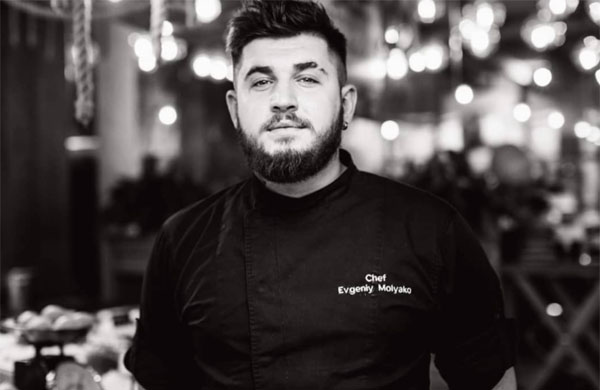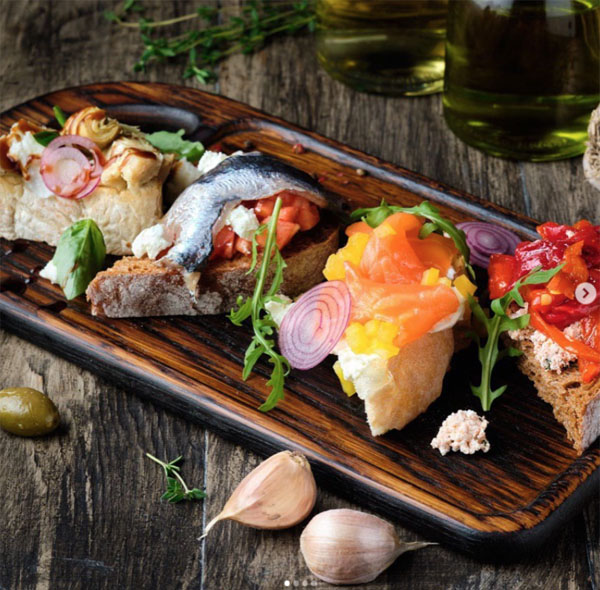Yevhenii Moliako’s Recipe for Scaling Without Losing Soul
By Space Coast Daily // May 21, 2025

When Yevhenii Moliako walked into San Francisco’s Cinderella Café for the first time, he didn’t make a speech or announce his experience. He watched. He listened. He measured the rhythm of the room. It wasn’t his kitchen yet. But what he carried with him—a sense of calm, discipline, and deep respect for the craft—quietly transformed the space.
With 15 years of culinary experience in Ukraine, Russia, Ireland, Canada, and the U.S., Moliako isn’t chasing trends or social media buzz. His mission is slower and deeper: build kitchens that endure, inspire, and honor culture. “Scale isn’t the enemy of soul,” he says. But you need to decide—are you after hype, or are you building something that lasts?”
Today, as head chef of Cinderella Café, Moliako leads a team of 30 preparing a soulful fusion of Ukrainian, Moldavian, Russian, and Lithuanian dishes. His responsibilities span procurement, training, menu development, and production. But more than managing logistics, he’s designing a kitchen culture where structure supports creativity and tradition sparks innovation.
From Kyiv’s Heat to Global Kitchens
Moliako’s culinary path didn’t begin with glossy cookbooks or fine-dining internships. It started on the line in Kyiv, elbow-to-elbow with older cooks who demanded precision, humility, and grit. “I learned everything by doing,” he says. “Respect came first—respect for the food and people cooking it.”
Over the next decade and a half, Moliako moved across borders and cuisines—working in Italian trattorias, Greek tavernas, spa resorts, seaside clubs, and modern bistros. He rose steadily from Kyiv to Odessa, Dublin to Toronto, adapting to new languages, leadership styles, and tastes. By 2020, he was running high-volume kitchens and training staff across continents.

Image: Yevhenii Moliako via Instagram
He formalized his training at three culinary academies and earned a fifth-grade chef qualification—a distinction in Eastern Europe that signifies technical mastery and leadership. He also completed higher education in restaurant management, adding business acumen to his culinary depth.
Yet, despite his credentials, Moliako still regards humility as his most essential skill. “In every country, you have to listen before you lead,” he says. Food may change, but people always want to feel understood.”
Structure That Frees, Not Restrains
At Cinderella Café, Moliako’s systems are quiet but powerful. He’s implemented prep calendars, procurement protocols, cost controls, and staff development plans. Every dish has a purpose, and every station runs with intention. These systems don’t restrict the team—they free them to focus, learn, and create.
“Without structure, a kitchen gets noisy,” he says. “And when food becomes noise, it loses its meaning.”
His leadership is active but unobtrusive. He trains with his cooks, who are many recent immigrants from Ukraine and Moldova. They describe him as present, precise, and unshakable. “He doesn’t raise his voice,” says one cook. “But when he speaks, we listen.”
Moliako leads through trust, not control. He believes that mentorship moves people forward faster than micromanagement ever could. “If your team feels safe and seen, they’ll grow. And when they grow, the restaurant does too.”
Cultural Memory on the Plate

Image: Yevhenii Moliako via Instagram
While many chefs dream of expansion, Moliako’s vision is rooted in legacy. He hopes to open a small network of Eastern European restaurants in San Francisco—spaces where culinary heritage is honored and local ingredients elevate old-world flavors.
But before that dream takes shape, his focus is internal: systems, staff, and sustainability. “If your foundation isn’t ready, your concept isn’t either,” he says.
At Cinderella Café, tradition is more than a theme—it’s a philosophy. Varenyky, cabbage rolls, and borscht are not copies of memory but reinterpretations. “One guest teared up when she tasted the dumplings,” Moliako recalls. “She said it reminded her of her mother’s kitchen in Lviv. That’s the moment I chase.”
Even standard brunch items carry emotional depth. Every dish tells a story, and every plate becomes a connection point. “I want people to feel like something is returning to them,” he says. “Like home, even if they’re thousands of miles from it.”
A Guide for Intentional Growth
For chefs navigating the balance between expansion and authenticity, Moliako offers a practical blueprint:
- Document everything: From prep to procurement, clarity creates consistency.
- Lead with trust: Model the culture you want to see.
- Let memory be your guide: Authenticity builds emotional connection.
- Grow your people first: Scale only when your team is ready.
Legacy Over Limelight
Despite his growing profile—including work as a speaker and curator at international culinary summits—Moliako remains focused on the kitchen, not the spotlight. He talks less about recognition and more about rhythm, resilience, and responsibility. “I’m not here to impress,” he says. “I’m here to make food that matters.”
Moliako is building something quieter—and far more enduring in a city drawn to spectacle: a culinary legacy rooted in purpose, tradition, and care.
About the Author
Stephanie Lee is a San Francisco-based writer focused on food, culture, and the stories behind the people who shape them. She’s passionate about exploring how heritage and innovation intersect in the kitchen.











